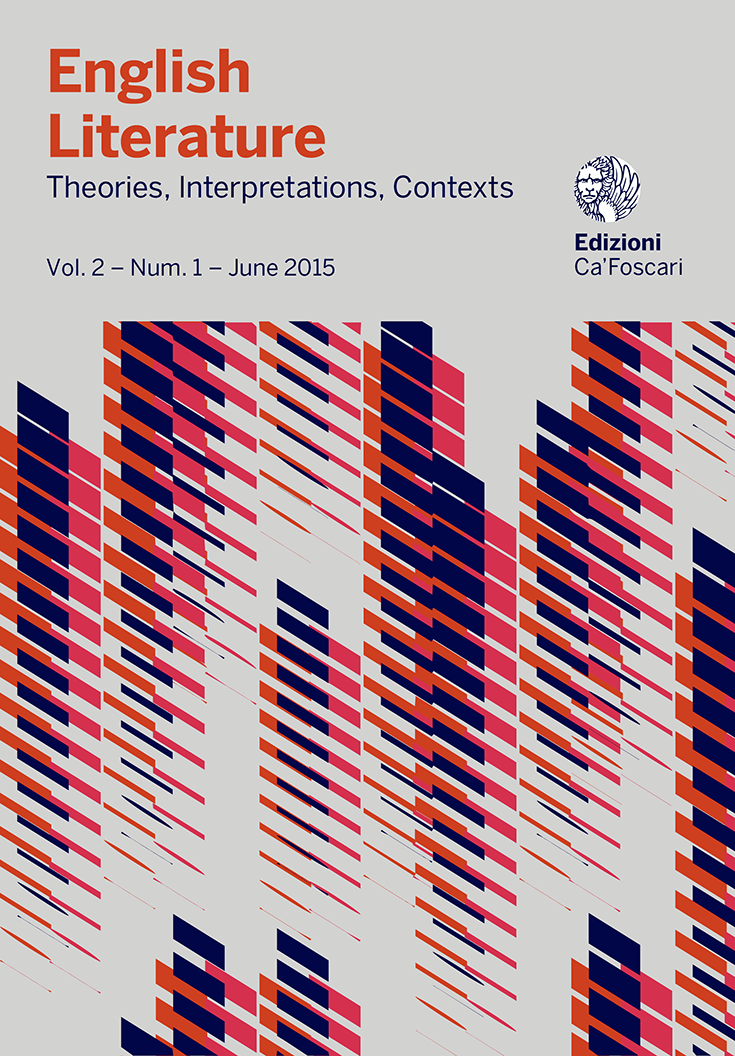
- search 588 views
- file_download 15 download
- keyboard_capslock metadata
-
mark_email_readIscriviti alla newsletter
Happy Face or Happy Space?
Expansions of Happiness in Eighteenth-Century Expository Verse
abstract
Between the now nearly archaic meaning of ‘happiness’ as fit, functional, or favourable and its modern meaning as a generalized mental state stands the Enlightenment, with its investigations not only of the nature of happiness but also of its pursuit and maintenance of happiness. This article analyses the expanding meaning and practice of happiness in the verse of the ‘long’ eighteenth century. The paper begins with what might be called the ‘eruptive’ approach to happiness in which assemblies of offbeat objects such as gemstones or of startling events such as those at the battle of Blenheim sum up to a more general idea of happiness. This amalgamative approach to happiness emphasizes not only the process but the spatiality of happiness: its emergence as an epiphenomenal je ne sais quoi and its tendency to expand beyond its origins. This essay explores the resulting eighteenth-century association between happiness and space through a probe of poets, such as James Thomson and Mark Akenside, who specialize in the description of vast panoramas. It uncovers the textures of spatial happiness through a look at sublime poets such as Thomas Warton and Christopher Smart, who link their vivid notions of happiness with visionary ideas of space, orientation, and bearing. The article concludes with an homage to astronomer William Herschel and other happy enthusiasts for vast distances.